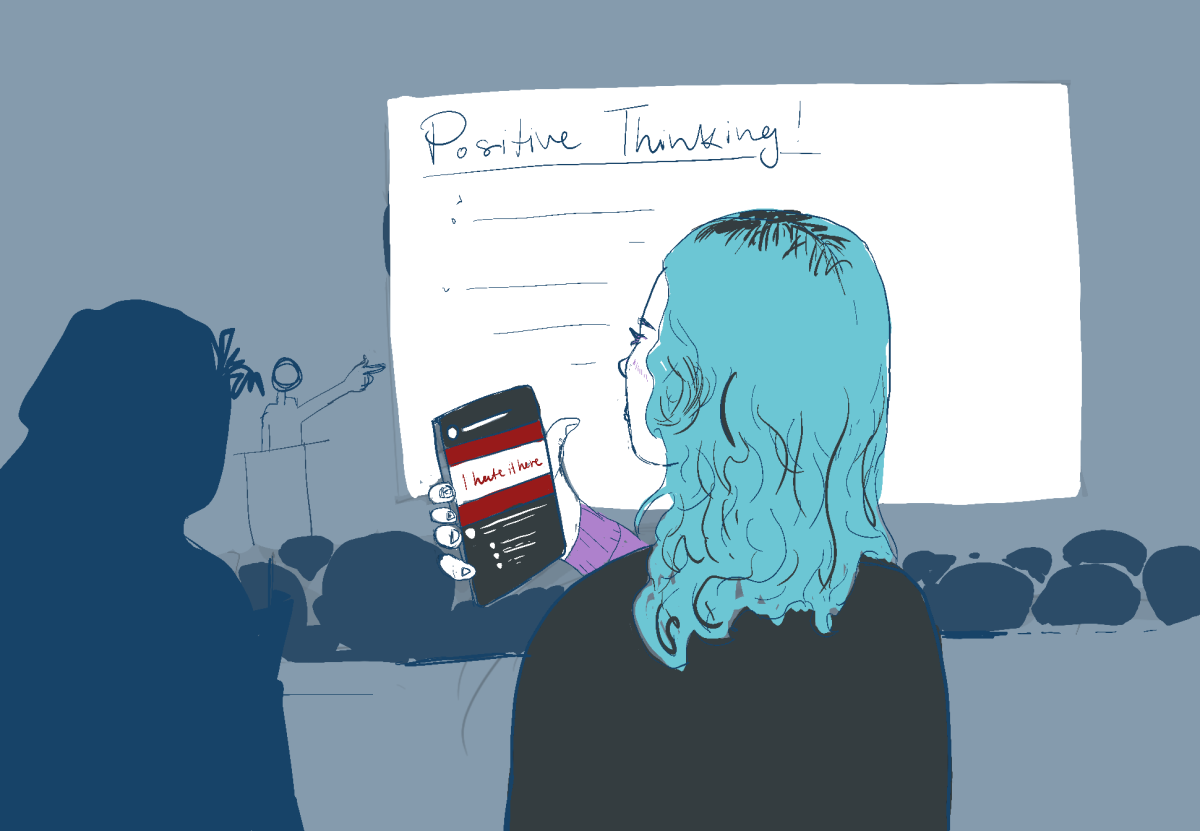For the past month, grievances ranging from the lack of forks in Mabee to accusations bordering on Title IX territory students have posted anonymously through the Instagram account TU Complaints. Since its creation on Sept. 30, TU Complaints allows students to fill out Google Forms to air their issues without repercussions or censorship, sparking drama within the community.
TU Complaints intends to provide an atmosphere for people to feel less alone in their problems. The account holder, choosing to remain anonymous, discussed their hopes for the posts.
“This account was created as a way for people to voice their complaints and perhaps know that they aren’t the only ones who are annoyed by something or someone,” the account holder wrote in a direct message. “Being able to express your thoughts helps even if it’s just behind a screen.”
Because the complaints are not limited to issues surrounding the institution, though, they have begun to impact the students and organizations of the Trinity community. While they have since been taken down, some posts name-dropped the subject of the complaint; some even include exact dorm location. Others have and continue to defame student organizations, particularly those in Greek life.
Concerns and critiques of Greek organizations have shown up on TU Complaints time and time again.
Though this is not the first time these worries have aired, their consolidation has made them more obvious than ever. Many fraternities and sororities have received anonymous complaints through the account, including the Delta Theta Nu and SPURS sororities.
Delta Theta Nu, the new multicultural sorority, has been the subject of a variety of complaints, but they declined to comment. SPURS sorority, however, have taken notice of the comments on their organization. Odinakachukwa (Odi) Aneji, sophomore international studies and political science double-major and SPURS member, expressed that she and her sorority sisters try not to take posts about the SPURS sorority too seriously.
“Whenever my sorority sees [posts about SPURS], we laugh in the group chat,” Aneji said. “I think that it doesn’t affect us because we know these things aren’t true.”
While the SPURS members may be able to approach these accusations with levity, the Greek council feels differently. They recently encouraged those in fraternities and sororities to unfollow the account, hoping to give it less of an audience.
The Greek council isn’t alone in their disapproval of the account. On an individual level, students hold strong negative feelings toward the account. Aneji, who refused to follow the account at all, remarked on the utility and validity of the submissions.
“I don’t subscribe to negativity,” Aneji said. “There are more constructive ways to voice your concerns. … [The account] spreads rumors that most of the time aren’t true.”
The negativity that TU Complaints may spread is a large point of contention for students. Nick Hayre-Perez, junior economics major, described his distaste for the account and its possible consequences.
“I think it’s a platform used to release negative energy,” Hayre-Perez said. “It could have a side effect of negatively affecting Greek unity because it’s just people shit-talking each other and other organizations.”
“Shit-talking” is not a term the account holder would choose. By providing a platform for these issues, the account holder said they bring a variety of issues to light. They expressed their desire for the account to spark conversation.
“The goal of this account is to give people a platform to voice their thoughts,” the account holder wrote. “The hope is that this account will give people something to talk about for an interesting conversation.”
The account holder addressed the more serious submissions, too. Since the creation of the account, the admin no longer posts complaints that name people or include serious accusations surrounding student organizations. They stated their plan to proceed with caution with their posts.
“Some complaints have gone too far … by putting down a particular person, group or organization,” the account holder wrote. “A more conscious effort will be made to think about what posts may cross the line from being just complaints to being hurtful to an organization.”
Students agree with this limit on complaints, too. Hayre-Perez asserted his opinion on what the account should post.
“I draw the line when it’s a serious accusation, and the person posting … just want[s] to send something [to] bash a group of people … and individually shouting out people can cross the line,” Hayre-Perez said. “It should be used to talk about issues that are not being addressed.”
Ultimately, the effect of the account is dependent upon how the anonymous submitters use it. Hayre-Perez emphasized the care that those engaging with the account must take.
“It’s easy to hear something and believe it. It’s easy to harm someone with your words,” Hayre-Perez said. “Just be peaceful. Just be good, nice people.”









